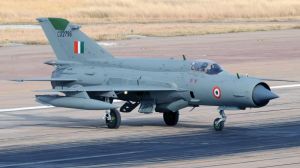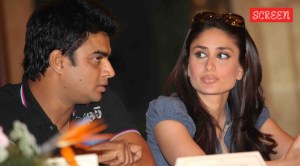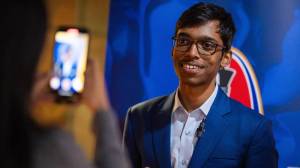Hosts kiss goodbye with marathon effort
South Koreans bid a touching farewell to thousands of their guests as a vibrant ceremony depicting the cultural heritage of the host nation ...

South Koreans bid a touching farewell to thousands of their guests as a vibrant ceremony depicting the cultural heritage of the host nation brought the curtains down on the biggest ever Asian Games here today.
Moments of triumph and failure during the last 16 days of competitions were forgotten with the participants gathering for one last time amidst rousing cheers from the capacity crowd as the first Games of the millennium was ceremonially brought to a close.
Dazzling fireworks lit up the night sky to herald the start of the closing ceremony of the Games which saw many new sporting heroes emerge in the Asian scene but powerhouse China continued to retain their stranglehold.
The Games, symbolising prosperity and unification for a new millennium across Asia, saw over 6,000 athletes from all the 44 countries battle for glory and will be remembered for the first-time participation of a North Korean contingent on South Korean soil.
India put up their best display abroad in Asiad bagging 36 medals, including 11 gold, but ace long distance runner Sunita Rani’s testing positive for a banned substance did tarnish the image of the country to some extent.
The 70-minute closing ceremony, held at the magnificent main Asiad stadium, began with a marching band playing traditional Korean music which received a loud applause from the spectators many of whom had taken up their seats much before the scheduled start.
Poignant scenes depicting the innocent playfulness of children and the love of the mothers took centrestage after the marching band retreated.
The athletes and officials of all the participating countries then entered the stadium to a loud ovation as the children and mothers stood in a line to watch them make their way into the ground.
They were led into the stadium by the emblem flag-bearers. The flag sported signs of all the 38 Games disciplines and also bore names of the participating nations. Songs by popular singers and cultural dances depicting the bonds of friendship, formed the next part of the programme, setting the stage for formal speeches and ceremonial flag hoisting ceremonies.
The flags of the Olympic Council of Asia (OCA), the national flag of the host country and the national flag of the host crountry for the 15th Asian Games, Qatar, were hoisted.
After the formal speeches, the flag of the Asian Games was handed over to the next host country. In 2006 the 15th Asian Games will be held in Doha, the capital city of Qatar.
Following the lowering of the Asian Games flag, the Games’ flame, which had brightened the main stadium and inspired competitors for the last 16 days, was extinguished with a lone woman praying next to the torch tower. The woman represents the Korean mother who prays for the safety of all foreign athletes and guests who will leave for their home countries.
The figure of praying mother symbolises a wish shared by all Koreans that all the visitors return home safely. The ceremony came to an end with the ‘Flying Duria’ the mascot of the Games, being released into the evening sky . (PTI)
Four-in-a-row for Korea
South Korea’s Lee Bong-Ju capped the host nation’s impressive gold medal tally at the 14th Asian Games by winning the men’s marathon on Monday to give the country their fourth consecutive title in the event.
Lee, who started among the favourites, held off the challenge of Japan’s Koji Shimizu and Ryuji Takei to win in 2:14.04 and give Korea their third athletics gold as the Games drew to a close. Overall South Korea have taken 96 out of 419 golds.
Shimizu took the silver in 2:17.47 and Takei picked up the bronze (2:18.38) with South Korea’s Lim Jin-Soo coming home in fourth place. China’s Gong Ke was a disappointing fifth, though the Chinese finished the Games with 150 gold medals overall.
Le was following in the footsteps of North Korea’s Ham Pong-Sil, who won the women’s marathon on Sunday to pick up her country’s first athletics medal of the Games. “Ham Pong-Sil won the women’s marathon yesterday so I wanted to make sure that I would win the gold medal for South Korea today,” said a delighted Lee. (Reuters)
Photos


- 01
- 02
- 03
- 04
- 05





























